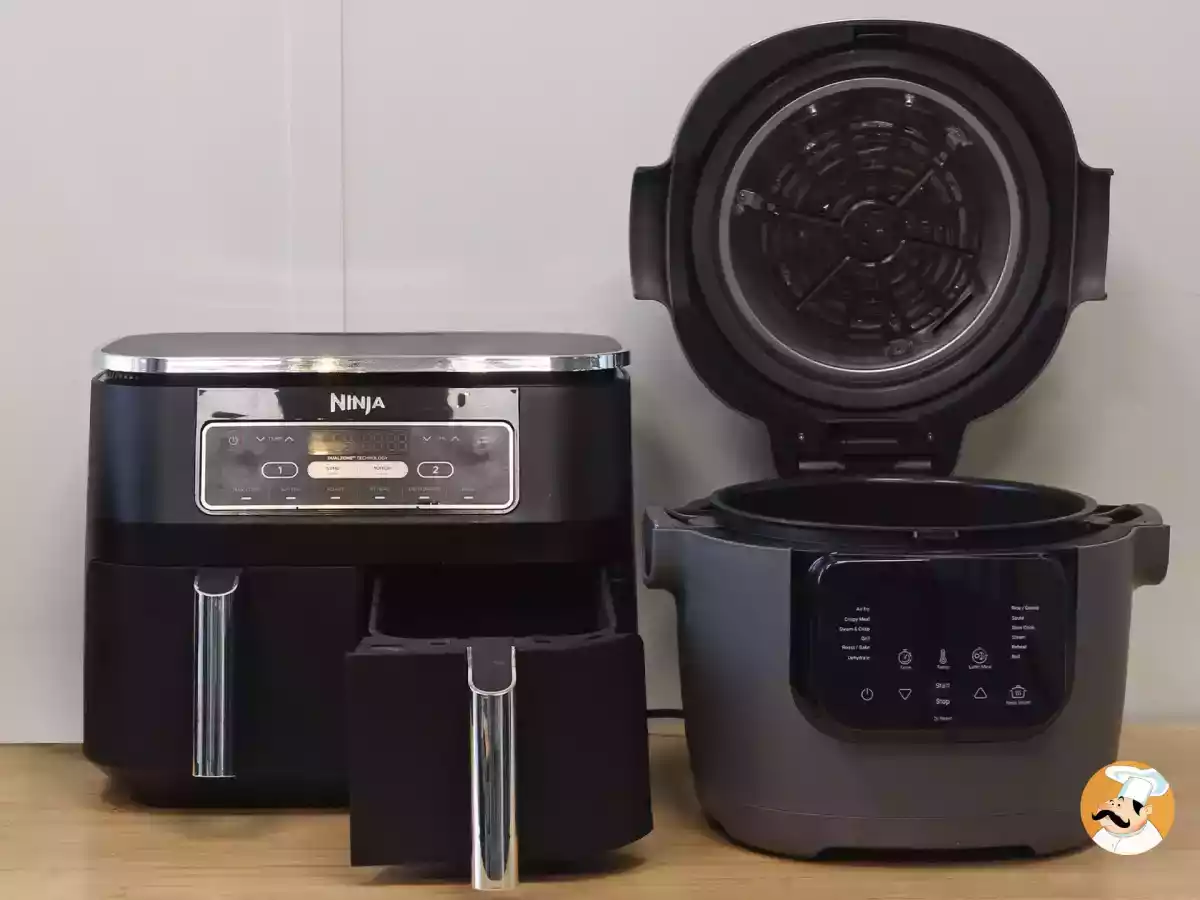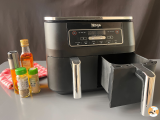Can't decide between an air fryer and an oven? Here's how to make the right choice!

The Air Fryer, has conquered many kitchens with its promise of fast, healthy cooking, often compared to the traditional oven. But which of these two appliances is the most economical, both in terms of energy consumption and overall efficiency? Let's take a look at the essential criteria to help you make the right choice:
1. Energy consumption: advantage for Air Fryer
One of the main arguments in favor of the Air Fryer is its low energy consumption. A standard conventional oven consumes on average between 2,000 and 3,000 watts per hour, whereas an Air Fryer consumes around 1,200 to 1,800 watts, a significant reduction in consumption.
What's more, the Air Fryer heats up very quickly, often in less than 3 minutes, compared with 10 to 15 minutes to preheat a conventional oven. This reduces operating time and therefore electricity consumption.
In conclusion:
- Air Fryer: Lower energy consumption and shorter cooking time.
- Traditional oven: Higher consumption due to larger capacity.
2. Cooking time and yield: the efficiency of the Air Fryer
The Air Fryer uses a convection system that circulates hot air rapidly around food, ensuring even, rapid cooking. It can cook certain foods up to 25-30% faster than a traditional oven.
The traditional oven, on the other hand, is better suited to longer cooking times and larger quantities of food. It offers greater versatility, enabling several dishes to be cooked at the same time, which can be economically advantageous for family meals.
In conclusion:
- Air Fryer: Ideal for small portions and quick meals.
- Traditional oven: More efficient for large, complex meals.
3. Purchase price and lifetime
The initial cost of an Air Fryer varies between US$60 and US$250, depending on brand and capacity, while a traditional built-in oven can cost between US$300 and US$1,500.
However, the oven has a longer lifespan, often around 10 to 15 years, whereas the Air Fryer tends to wear out more quickly, with an average lifespan of 5 to 8 years.
In conclusion:
- Air Fryer: More affordable to buy, but shorter lifespan.
- Traditional oven: Higher initial investment but longer service life.
4. Versatility and cooking capacity
While the Air Fryer excels in the rapid cooking of fried or roasted foods (fries, nuggets, grilled vegetables), it shows its limitations for more voluminous preparations such as roasts or simmered dishes. The traditional oven, on the other hand, remains the indispensable tool for family dishes, bain-marie cooking or pastry-making.
In conclusion:
- Air Fryer: Perfect for quick, crisp dishes.
- Traditional oven: Indispensable for a wide variety of dishes.
5. Care and convenience
The Air Fryer is generally easier to clean, with its removable, dishwasher-safe baskets. Ovens, on the other hand, require regular maintenance, particularly to remove grease from the walls and grids.
In conclusion:
- Air Fryer: quicker and easier to clean.
- Traditional oven: More demanding maintenance, but greater capacity.
Verdict: which one to choose?
If your priority is to save energy, cook fast and take up a minimum of space in your kitchen, then the Air Fryer is the best choice. On the other hand, for those who cook in large quantities, enjoy baking or are looking for a durable appliance, the traditional oven is still a must.
So :
- Opt for the Air Fryer if you're looking for practicality, speed and energy savings.
- Choose the traditional oven if you often cook for several people and need a versatile appliance.
Find out more:
 Adèle Peyches
Adèle Peyches


Comments